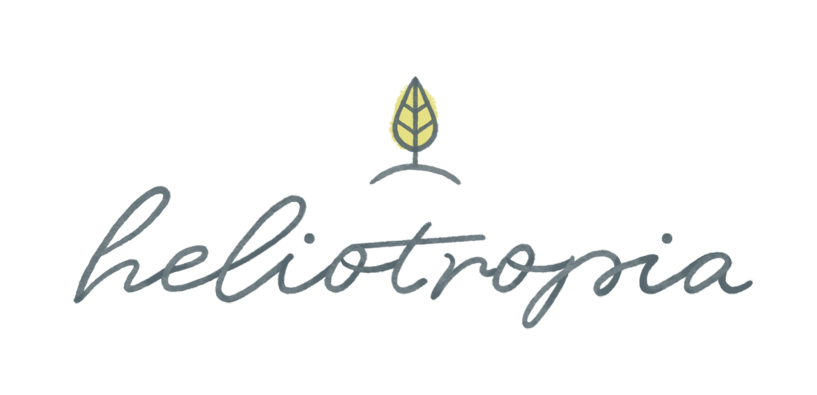
Heliotropia Webinars
Heliotropia’s ‘live online’ webinars are tailor made for your organisation.
They are engaging ‘live online’ Zoom sessions with Q&A to finish.
They are a great way to learn about evidence based wellbeing.
Listed below are recent webinar topics.
Anything you see here can be adapted into an in person facilitated workshop.
Reach out to enquire about a custom designed webinar here
-
Mental Fitness is a recognised wellbeing framework that marries all we know about keeping physically fit with our psychological wellbeing (Robinson & Oades, 2017).
Using researched concepts such as meaning and purpose, mindfulness, positive emotion and resilience, we can learn to strengthen the three big building blocks of fitness: strength, flexibility and endurance.
If we do this enough, we may begin to integrate such training into our everyday lives, setting up habits and beliefs that have a long lasting and protective effect.
This will be a highly practical session with lots of ideas to get your own routine started.
-
Without deliberate strategies to manage stress in the workplace and personally, we can quickly become overwhelmed and rely on habitual coping patterns that may not be healthy or sustainable. This webinar will cover practical ways to build a more resilient mindset so that when we are challenged, we have a range of strategies to put into action.
-
Healthy, reciprocal relationships characterised by connection and presence are the cornerstone of wellbeing. Yet they are one of the hardest elements of life to negotiate and sustain. Ongoing awareness and effort are key ingredients to maintaining them. This webinar will explore relationship skills and how to build connection with others.
-
Emotional agility is best defined as the ability to approach our emotional experiences with curiosity, compassion and courage. Essentially to be healthy with who we are as a whole. Emotionally agile adults are generally skilled at integrating all elements of self in a cohesive and self regulated way. This webinar will explore the research of Susan David PhD and cover practical ways to build an emotionally resilient and agile self.
-
Self-compassion is a strongly researched theory in wellbeing science. It is a way of relating to ourselves across the lifespan and especially in times of struggle or suffering. Self-compassion involves increased kindness to self, less judgement of self and greater mindfulness around the ways in which we relate to self. Self-compassion is consistently and strongly linked to increased wellbeing and higher mental health. This webinar will explore the research of Kristin Neff PhD and assist you to design your own self compassionate goals.
-
This webinar will explore the process of balancing our self interest with the interests of the whole. In a world fuelled by self comparison and self doubt, quietening our ego and embracing the whole can build wellbeing and a better world. Drawing on both research and practical advice, we will look at ways in which turning towards an ecosystem awareness and away from the dominant narrative of ego can build perspective and authenticity.
-
Core values are deeply meaningful qualities and beliefs that serve to guide us, both personally and professionally. Identifying our core values can be a life giving way to bring some structure to our lives as the world becomes increasingly fragmented and jarring. Having values we can readily articulate provides us with a compass in all facets of our lives. This webinar will use the Schwartz Circumplex, a validated measurement tool for uncovering one’s core values and activating them in everyday life.
-
In a world fuelled by self comparison and self promotion, we are losing our ability to truly listen. By pausing our own narrative, we can start to embrace the whole and build wellbeing and a better world. Drawing on both research and practical advice, we will look at the deep listening model developed by the Theory U team at MIT in Boston. Their work has been focused for decades on bringing awareness to whole systems and then being brave enough to change them. Leadership is considered to be the greatest leadership strength of them all. This webinar will explore how to lead from a place of deep listening.
-
HELIO is a model of wellbeing developed by Lisa Barker. HELIO, meaning SUN introduces five of many possible themes that relate to human wellbeing: Health, Engagement, Learning, Interconnection and Optimism.
This webinar/workshop will introduce the HELIO model of wellbeing. HELIO will provide a simple, easy to remember structure for activating 'day to day' ways to craft sustainable wellbeing.
Drawing on both research and practical advice, we will set some simple and meaningful daily intentions that with practice may become habits. We will look at ways in which to make them stick throughout the year, especially when we are challenged and under stress.
-
Ongoing awareness and effort are key ingredients to maintaining strong relationships. One of the common stumbling blocks for many of us is that there is a gap between what we intend to convey and how our message actually lands. If you've ever 'put your foot in it' with someone you care about, you'll remember that whilst your intentions were good, the impact was not.
This session will explore why intention and impact don't always match up. From a research perspective, we'll touch on emotional intelligence and poly vagal theory. We will then step participants through a process of uncovering and exploring practical ways to align intention and impact both personally and professionally.
-
This practical, research based webinar will cover the ‘hows’ of sustainable wellbeing as we mature and transition towards a different phase of our lives.
For many men and women, midlife offers a unique opportunity to welcome and embrace change. All of us possess an innate capacity to feel engaged and purposeful and this is important across the lifespan.
This webinar will explore how to live meaningful lives as we navigate the tension between continuity and change in a society that makes many assumptions regarding ageing.
Robust psychological resources are key to managing the complexity of this life stage. The work of Carol Ryff PhD will be highlighted.
-
This one hour Sleep Workshop will begin by briefly looking at the latest wellbeing science research.
We will then dive into practical ways to build a high quality sleep routine based on scientific evidence.
During the session, you’ll design your own bedtime wind down routine and be given some resources to assist with this process.
-
Mindfulness has been a buzzword in wellbeing for a long while now and has its origins in the ancient wisdom traditions of buddhism and other spiritual frameworks from around the world. For many, it is life changing and provides a scaffold to cope with the complex challenges of modern life. The daily ritual of taking time to be fully present is so counter-intuitive to the harsh reality of the world we live in. The habit of existing mindlessly becomes our default mode and this threatens every element of human wellbeing. Living mindfully is all about conscious awareness. By getting to know and adopting the fundamental tenets of mindfulness and interweaving them into our daily lives, we can begin to uncover the secret to living a more focused and engaged life. Deep engagement then leads to Flow: the experience of being fully immersed in what we are doing. Flow is an optimal state and incredibly good for our wellbeing. How to create the conditions by which it can happen will be a key component of this one hour webinar.
-
This webinar will introduce our signature ONLINE STRONG digital wellbeing model. These live online sessions are private and do not require participants to be on screen or participate unless you choose to anonymously via the Q&A. They are highly practical and also very calming with a short meditation included in each one.
-
Traumatic events are part of life and can produce complex and lasting negative consequences. A huge body of research is available on the negative effects of trauma and the ways in which our physical and psychological health is compromised. What is less well known is that there is now a growing and compelling body of research outlining the benefits that may emerge from experiencing trauma. Broadly speaking, these benefits can bring lasting changes to our sense of self, our relationships and our philosophy of life. We call this change Post Traumatic Growth.

